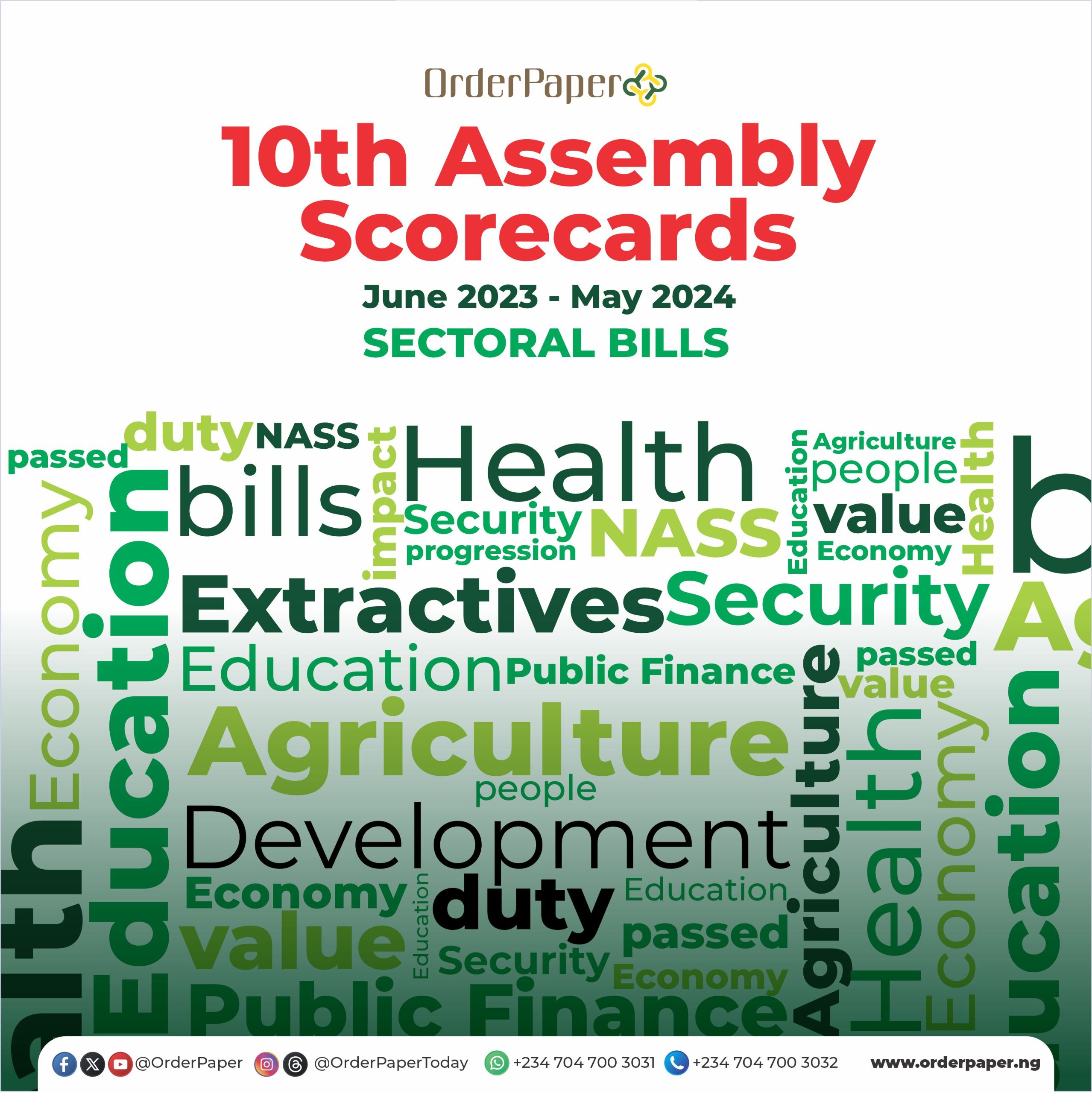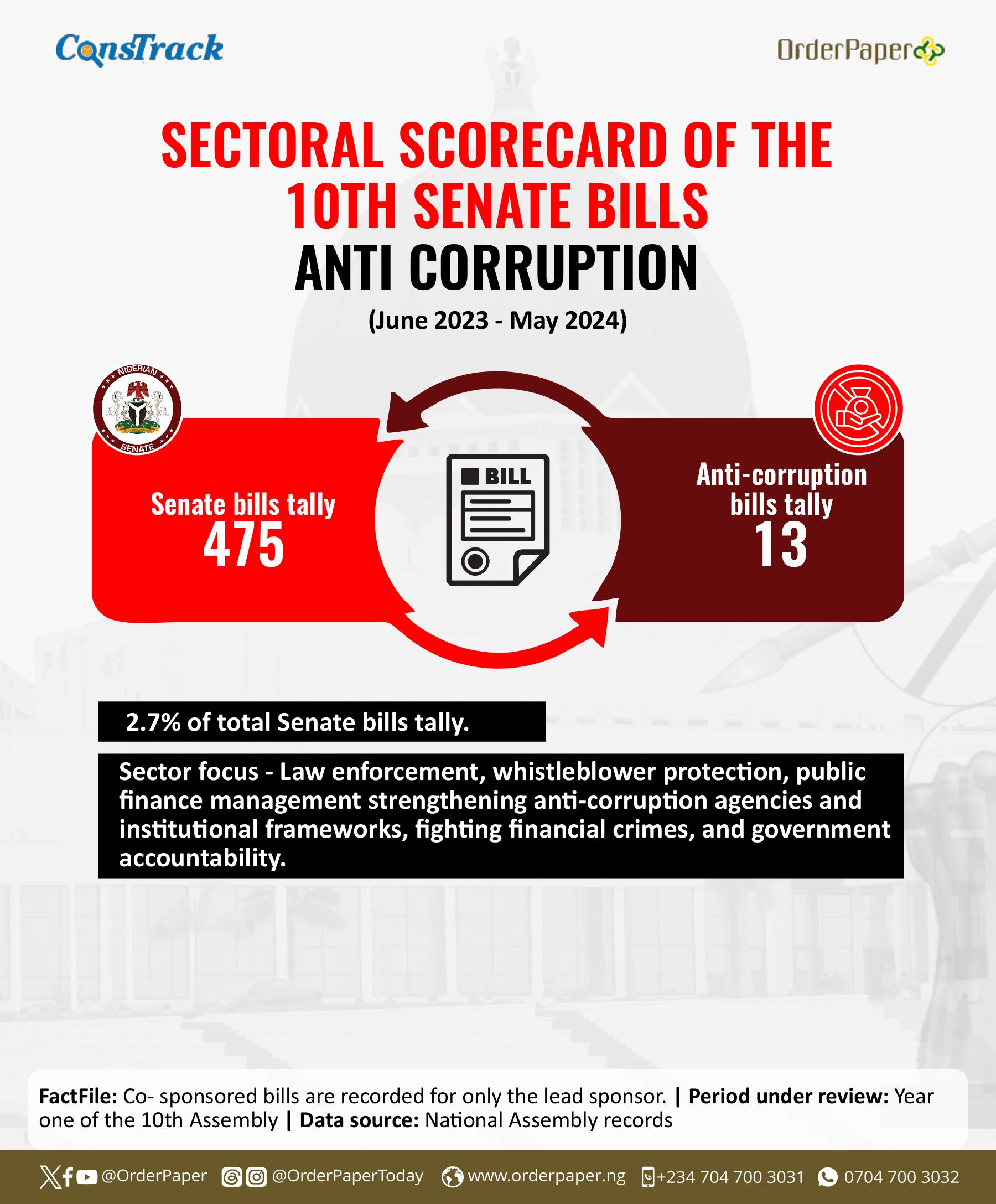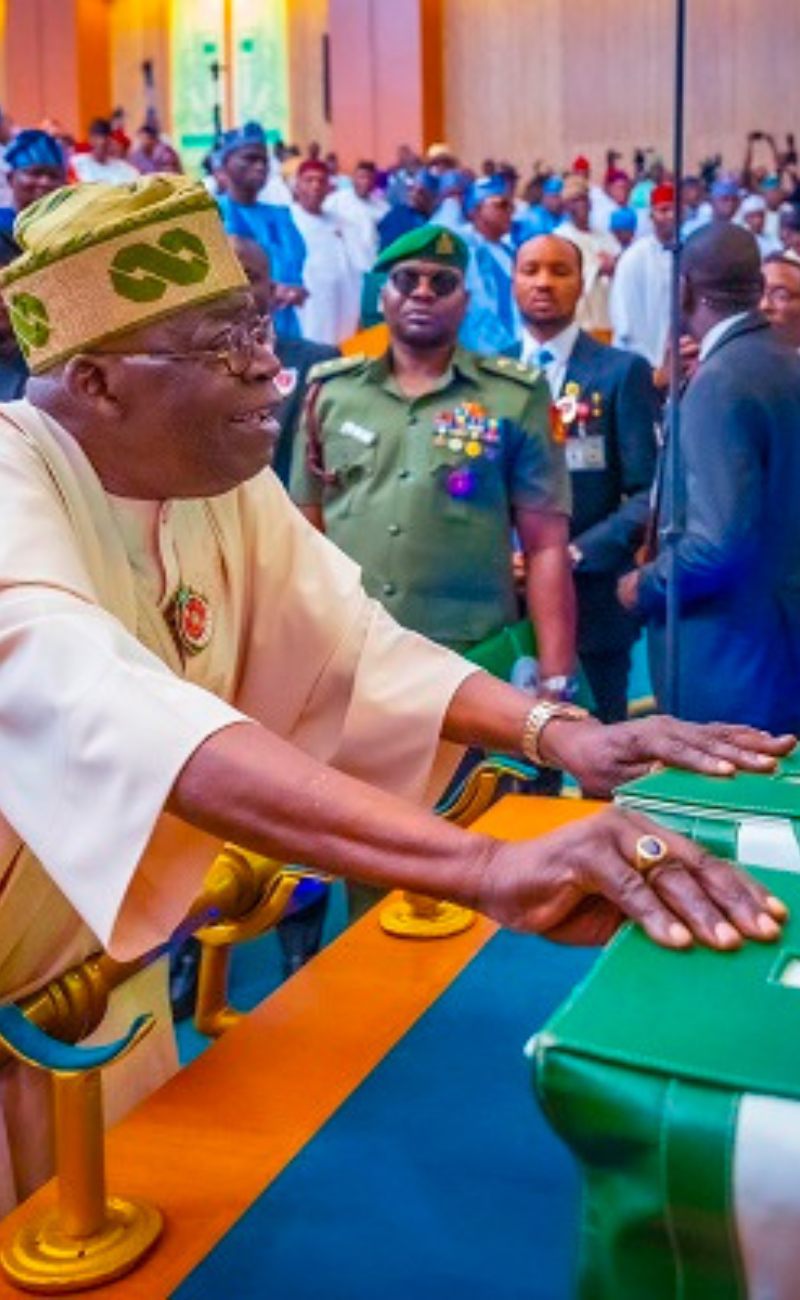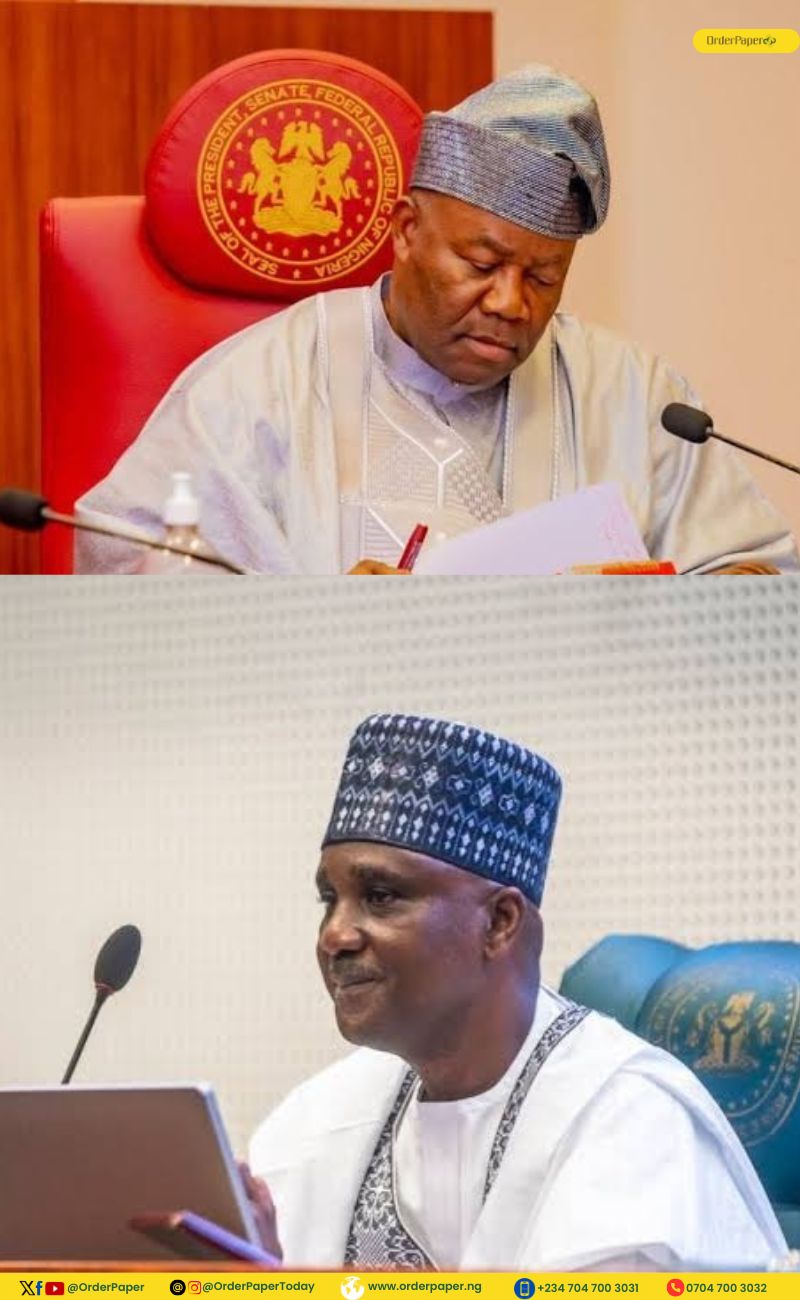
Corruption remains a fundamental obstacle to Nigeria’s economic growth and governance yet only 13 bills were introduced in the 10th Senate to address it.

Despite ongoing challenges to combat corruption as a pervasive issue, the legislative output from the 10th Senate during its inaugural year raises concerns. With Nigeria ranked 145th out of 180 countries on Transparency International’s Corruption Perception Index (CPI), the introduction of only 13 anti-corruption bills is a concerning assessment of how seriously this critical issue is being confronted. Given the magnitude of the corruption problem, a more concerted and robust approach is essential.
This situation reflects serious weaknesses in Nigeria’s governance structures and a pressing need for reform. Countries with similar CPI ranking typically struggle with weak governance, lack of transparency in public spending, impunity, and fragile institutions. Nigeria’s score mirrors persistent issues like bribery, embezzlement, nepotism, and illicit financial flows.

Legislative underperformance on corruption: A mere 13 anti-corruption bills
The introduction of only 13 anti-corruption bills during the first year of the 10th Senate falls below expectations particularly given the scale of corruption. While legislative action is crucial for establishing frameworks of accountability, transparency, and enforcement, the proposed bills reflect only incremental reforms—enhancing the powers of existing anti-corruption agencies, improving public finance management, and strengthening whistleblower protections. These initiatives, while significant, do not adequately address the systemic and pervasive nature of corruption in Nigeria. Furthermore, many of these bills are still awaiting second reading leaving a substantial gap in the fight against corruption.
The introduction of just 13 anti-corruption bills in the inaugural year of the 10th Senate falls far short of what is necessary to tackle Nigeria’s corruption crisis. With corruption hampering economic growth, governance, and national development, a more vigorous legislative response is imperative to curb this menace and foster economic advancement in Nigeria.
10th NASS Report Card: Read up on the performance of other senators and members of House and other specialized categories here



